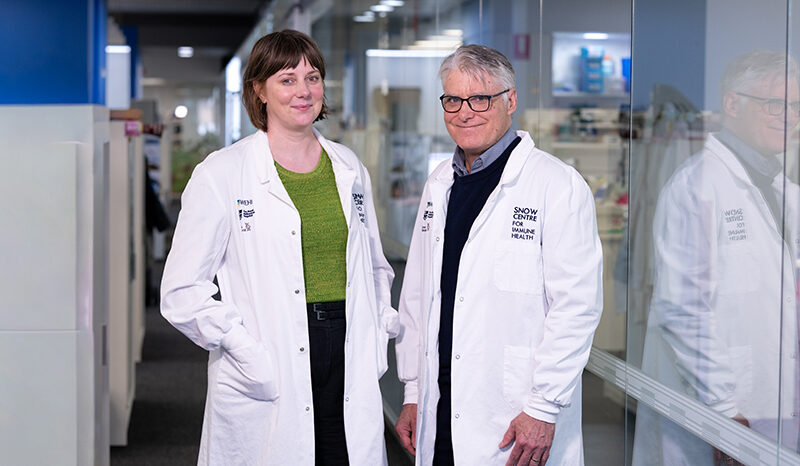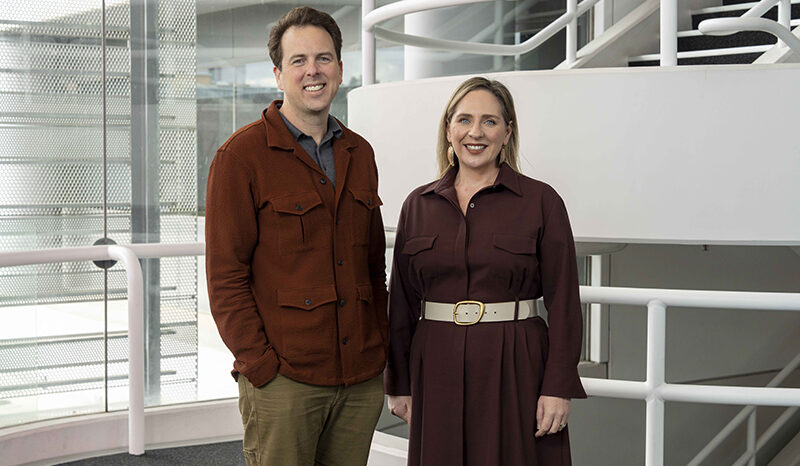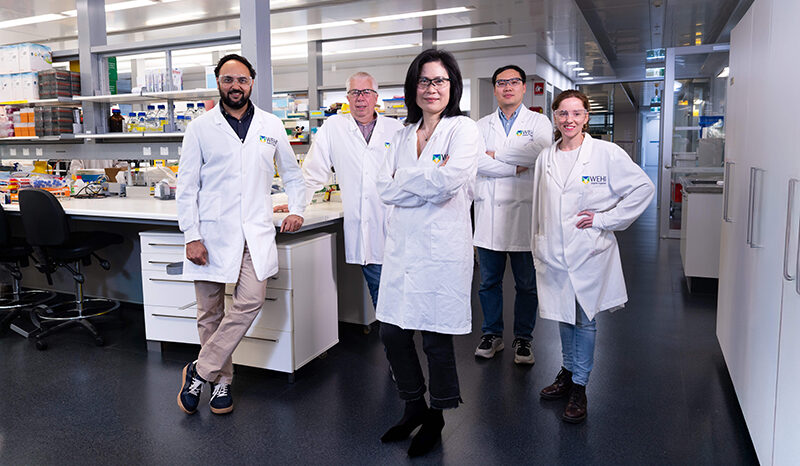At university, Dr Rebecca (Bekky) Feltham knew there was something special about biochemistry.
“Breaking down life into smaller parts helped me better understand the world,” said Dr Feltham, who heads a laboratory in WEHI’s Ubiquitin Signalling division.
Ubiquitin is a protein that helps regulate cellular processes in most human tissues, but in cancer and inflammatory disease, ubiquitin signalling is deregulated.
“My research specialty has been understanding from a biochemist’s perspective how inflammation is controlled through the ubiquitin system,” Dr Feltham explained.
“Our focus is on a family of enzymes central to the ubiquitin system and how we can target them to treat inflammatory diseases and cancers.
“We also develop ubiquitin-based technologies – specifically targeted protein degraders (TPDs) – to validate potential therapeutic targets.”
TPDs offer “immense potential” to dramatically reduce the high failure rates in drug discovery and development, according to Dr Feltham.
“My hope is that our next breakthrough will lead to a new therapy that targets the ubiquitin system in the treatment of inflammatory-driven disease.”
Dr Feltham particularly appreciates WEHI’s collaborative culture.










